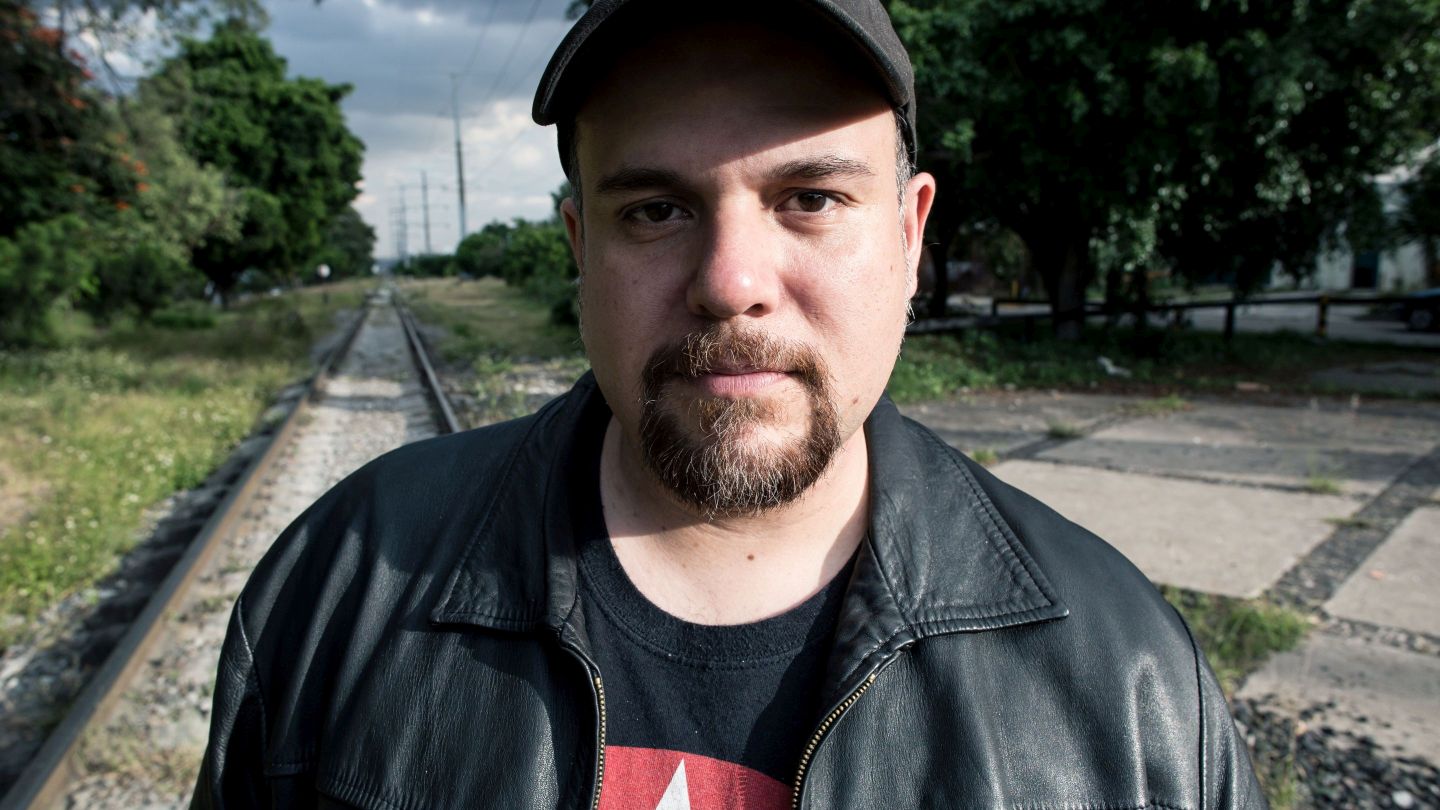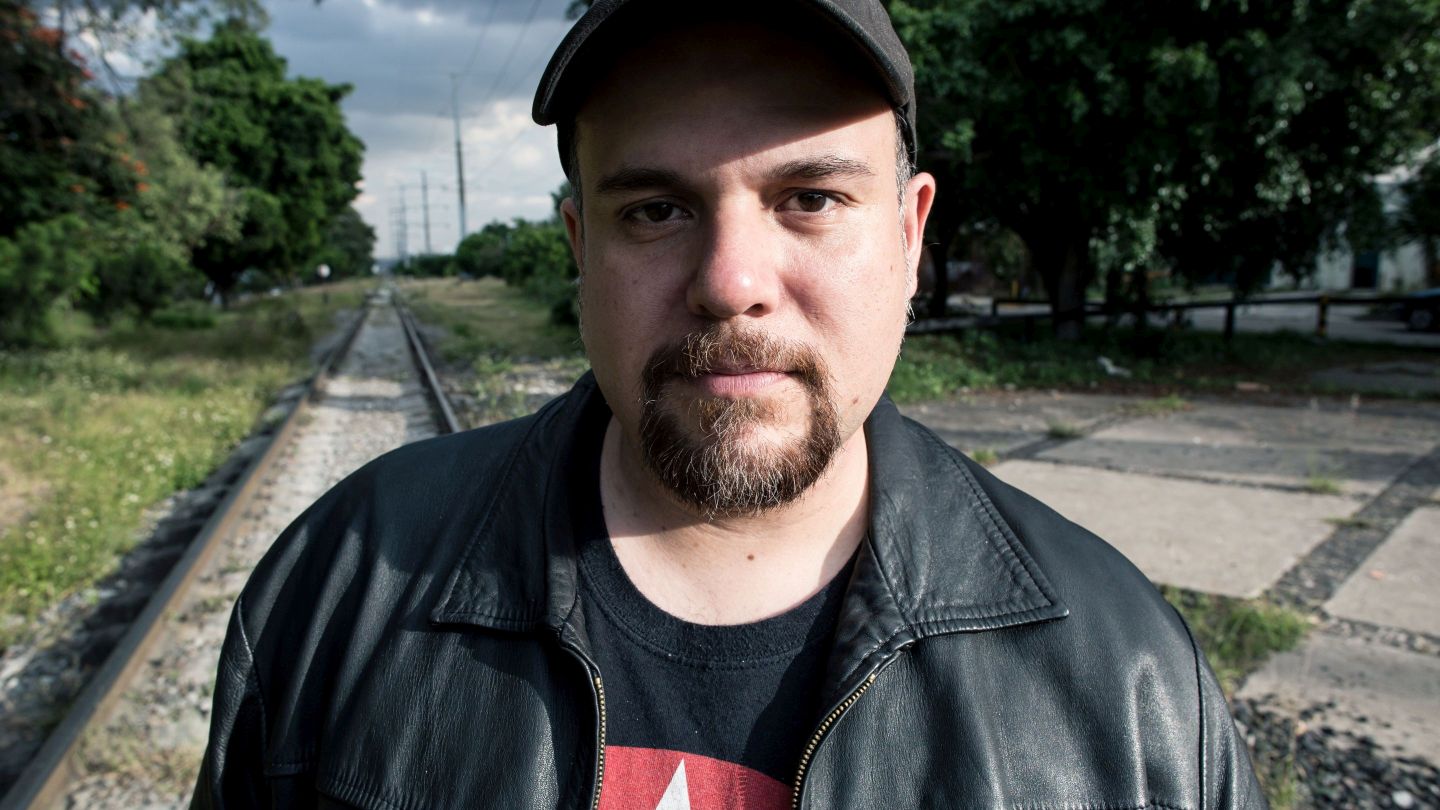Mexico, Literature, 2018
Antonio
Ortuño

Considering the numbers of migrants today and the misery they are prepared to forcibly endure for the sake of a better life, makes them seem like the “damned of the earth” now. Journalist and writer Antonio Ortuño—born in 1976 to Spanish immigrants in Guadalajara, Mexico’s second-largest city—knows how to sing a song. Not least because thousands of people from Central and South America try escaping to the US every year—and their route leads through Mexico. They are repeatedly abused and maltreated, robbed, or murdered on this journey, or they fall victim to human trafficking.
The area where Ortuño grew up has been located for ages on a railway line forming one of the major railway arteries across Mexico. Even as a child, he saw migrants jumping off freight trains. Since then, he has not given the issue a rest; neither as a journalist nor as a writer. In Die Verbrannten (published in German in 2015)—the fourth novel by the exceptionally talented Mexican author, who published his first novel with aplomb in 2006—Ortuño guides his readers directly into the hell of the damned; the novel was provoked by a massacre in 2010, in which seventy-two migrants were murdered by a killer juvenile gang. Yein, a young woman from San Salvador and the female main protagonist in Die Verbrannten, also hopes for a better life in the US. But she and her husband are caught by the police while still on Mexican soil and are placed in a transit camp for illegal asylum seekers in the fictional town of Santa Rita. In Santa Rita, however, there is a veritable war between rival criminal gangs. When the emergency shelter is set on fire and almost all the inmates are murdered except for Yein, a social worker named Irma is sent in to solve the case. In her—and Luna, a journalist—Yein finds an ally. She desperately needs them because the enemy is powerful. It is the state itself: the official response to the killings is a policy of placatory appeasement—the victims themselves are criminalized instead. Gradually, Ortuño, through Irma, exposes the abysmal structures and mechanisms of a state in which smugglers, drug cartels, and authorities, criminals, politicians, and police officers are in business together to take advantage of the defenseless victims who are stripped of their rights. The masterly composed novel—which refuses to be either reportage or documentary—contrasts the state’s ignorance, inherent racism, and consequent contempt for human beings with its luminous courage: in short chapters narrated by various figures, Ortuño assembles a polyphonic chorus. The narrative pace is quick; his sparse, clear language relies on deliberately irksome changes in tone; the novel’s cruel realism is contrasted with surrealistic passages. At the same time, Ortuño skillfully avoids any cheap or striking effects. On the contrary: Die Verbrannten does not just provide a “snapshot of Mexican conditions,” writes Thomas Wörtche (Weltempfänger 28/2015). Antonio Ortuño unequivocally shows how a state nourishes the basest instincts when it seals itself off—and stirs up the violence it purports to prevent. Violence is also a recurring theme in the novel Madrid, Mexiko (published in German in 2017), the bloody and brutal story of a Spanish family forced into exile by the Spanish Civil War and whose lives Ortuño follows over a number of decades. Madrid 1923, Mexico City 1946, Guadalajara 1997, and Toledo 2014 are the settings; migration, exclusion, and corruption again form an explosive mixture. Drawing parallels between the Spanish Civil War of long ago and the drug wars plaguing Mexico today is intentional: in an interview published in 2016 by the Spanish newspaper El País, he referred to the fact that the situation in his homeland is approaching a scenario that is alarmingly reminiscent of the former Spanish Civil War. The novel—which follows two main characters in short episodes that jump back and forth in time and become more and more intertwined—acts like a mixture of thriller, adventure, and generational novel: the language is vivid, the style cinematic—at times, as Hans Christian Riechers points out in his SWR2 segment (book review, August 22, 2017), you feel like you’re in one of Mexican director Alejando González Iñarritu’s films. Nevertheless, in Riechers’s view, Madrid, Mexiko also carries an unmistakable socio-critical signature: the apparent weaknesses cancel one another out—like in Die Verbrannten. And: Ortuño suggests that under certain circumstances anyone can become a criminal. His Mexico may be closer to us than we would like. Yet another reason to read the novels of this outstanding author.
Text: Claudia Kramatschek
Translation: Erik Smith
Die Verbrannten.
Novel. From the Spanish by Nora Haller.
Kunstmann Verlag, Munich 2015


